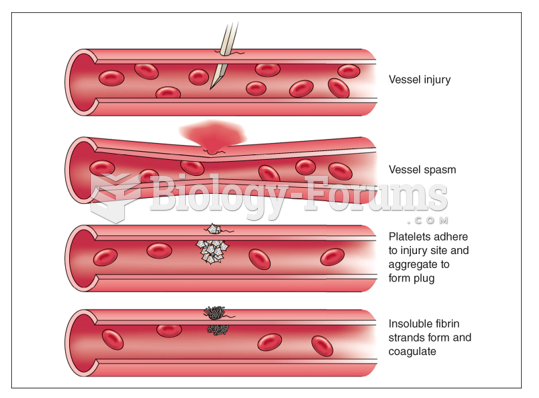This topic contains a solution. Click here to go to the answer
|
|
|
Did you know?
In 1885, the Lloyd Manufacturing Company of Albany, New York, promoted and sold "Cocaine Toothache Drops" at 15 cents per bottle! In 1914, the Harrison Narcotic Act brought the sale and distribution of this drug under federal control.
Did you know?
Cyanide works by making the human body unable to use oxygen.
Did you know?
The average office desk has 400 times more bacteria on it than a toilet.
Did you know?
It is believed that humans initially contracted crabs from gorillas about 3 million years ago from either sleeping in gorilla nests or eating the apes.
Did you know?
Bacteria have been found alive in a lake buried one half mile under ice in Antarctica.







